An ideal gas goes from State A to state B via three different process as indicate in the P−V diagram.
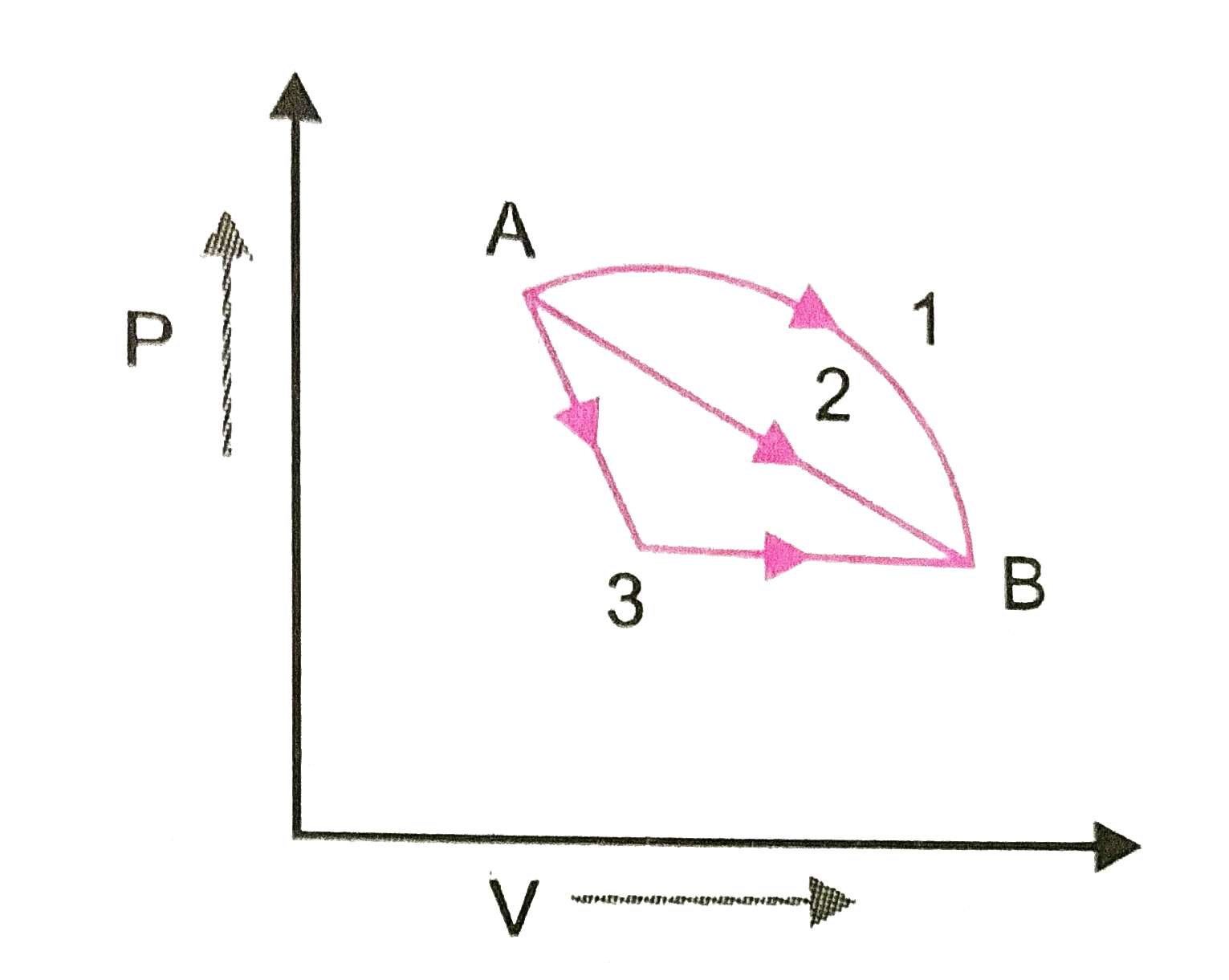
If Q2,Q3 indicates the heat absorbed by the gas along the three processes and ΔU1,ΔU2,ΔU3 indicates the change in internal energy along the three processes respectively, then
Q1>Q2>Q3 and ΔU1=ΔU2=ΔU3
Q3>Q2>Q1 and ΔU1=ΔU2=ΔU3
Q1=Q2=Q3 and ΔI1>ΔU2>ΔU3
Q3>Q3>Q1 and ΔU1>ΔU2>ΔU3
The correct Answer is:A
Step by step video, text & image solution for An ideal gas goes from State A to state B via three different process as indicate in the P-V diagram. If Q_(2), Q_(3) indicates the heat absorbed by the gas along the three processes and DeltaU_(1), DeltaU_(2), DeltaU_(3) indicates the change in internal energy along the three processes respectively, then by Physics experts to help you in doubts & scoring excellent marks in Class 12 exams.
Updated on:21/07/2023Topper's Solved these Questions
- ThermodynamicsBook:MOTIONChapter:ThermodynamicsExercise:EXERCISE - 3 SECTION
Explore 1 Video
- ThermodynamicsBook:MOTIONChapter:ThermodynamicsExercise:EXERCISE - 3 SECTION b
Explore 26 Videos
- ThermodynamicsBook:MOTIONChapter:ThermodynamicsExercise:EXERCISE - 2
Explore 40 Videos
- SURFACE TENSION & VISCOSITY Book:MOTIONChapter:SURFACE TENSION & VISCOSITY Exercise:Exercise - 4 | Level-II Previous Year | JEE Advanced
Explore 12 Videos
- UNIT & DIMENSIONSBook:MOTIONChapter:UNIT & DIMENSIONSExercise:Exercise - 4 (Level - II) (PREVIOUS YEAR JEE ADVANCED)
Explore 10 Videos
Similar Questions
An ideal gas is taken from state A to state B following three different paths as shown in P-V diagram. Which one of the following is true ?
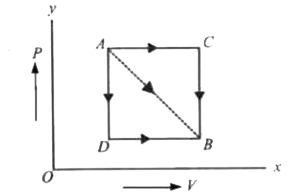
View SolutionOne mole of an ideal gas is taken from state A to state B by three different processes (a) ACB, (b) ADB and (c ) AEB as shown in the P−V diagram. The heat absorbed by the gas is
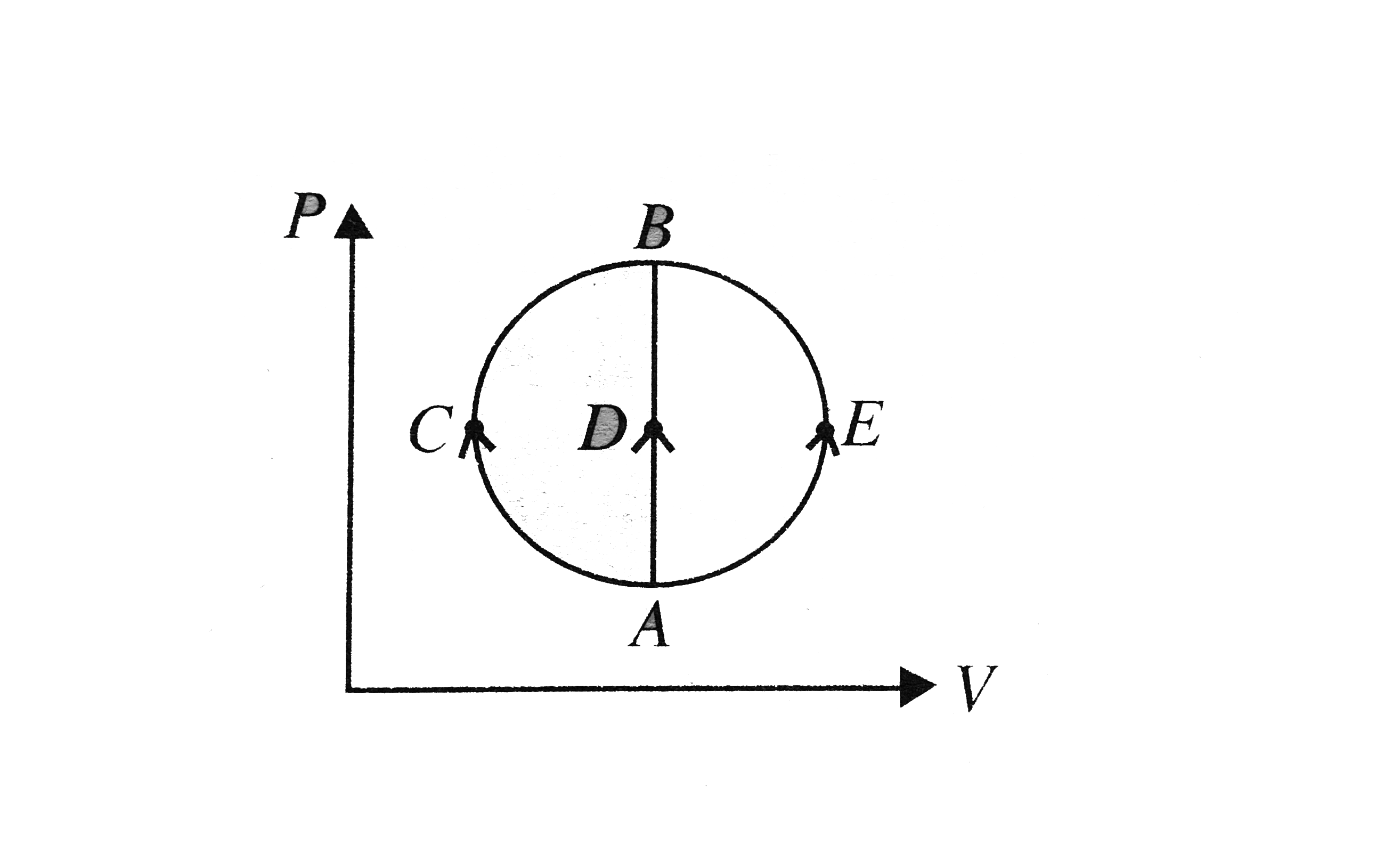
View Solution
Knowledge Check
An ideal gas goes from state A to state B via three different processes as indicated in the P-V diagram. If Q1,Q2,Q3 indicate the heat absorbed by the gas along the three processes and ΔU1,ΔU2,ΔU3 indicate the change in internal energy along the three processes respectively, then
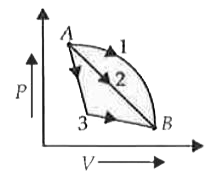 AQ1>Q2>Q3 and ΔU1=ΔU2=ΔU3BQ1>Q2>Q3 and ΔU1=ΔU2=ΔU3CQ1=Q2=Q3 and ΔU1>ΔU2>ΔU3DQ3>Q2>Q1 and ΔU1>ΔU2>ΔU3
AQ1>Q2>Q3 and ΔU1=ΔU2=ΔU3BQ1>Q2>Q3 and ΔU1=ΔU2=ΔU3CQ1=Q2=Q3 and ΔU1>ΔU2>ΔU3DQ3>Q2>Q1 and ΔU1>ΔU2>ΔU3An ideal gas of mass m in a state A goes to another state B via three different processes as shown in Fig. If Q1,Q2 and Q3 denote the heat absorbed by the gas along the three paths, then
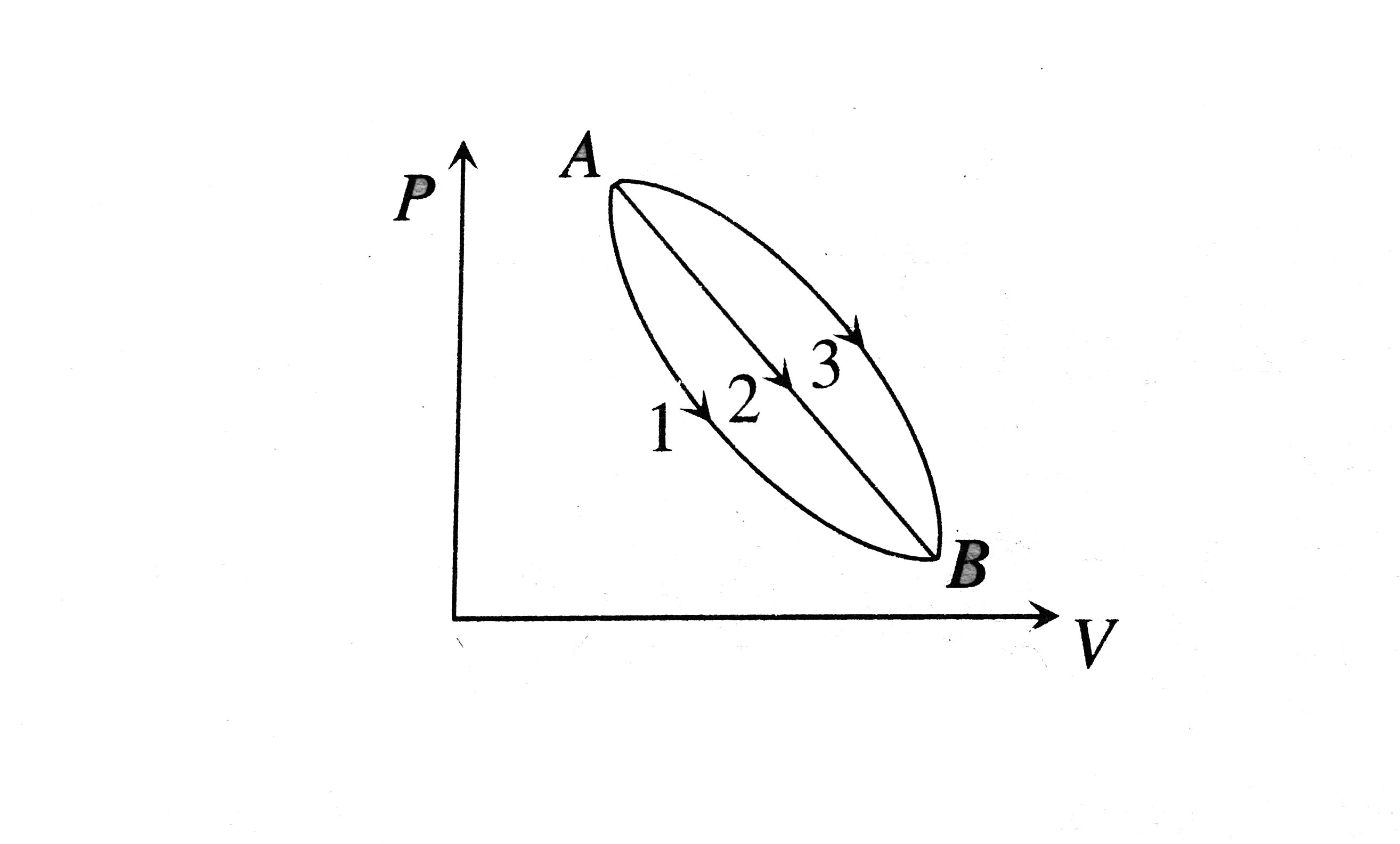 AQ1<Q2<Q3BQ1<Q2=Q3CQ1=Q2>Q3DQ1>Q2>Q3
AQ1<Q2<Q3BQ1<Q2=Q3CQ1=Q2>Q3DQ1>Q2>Q3Refer to let ΔU1 and ΔU2 be the changes in internal energy of the system in the processes A and B. then
AΔU1>ΔU2BΔU1=ΔU2CΔU1<ΔU2DΔU1≠ΔU2
One mole of an ideal gas is taken from state A to state B by three different processes (a) ACB, (b) ADB and (c ) AEB as shown in the P−V diagram. The heat absorbed by the gas is

View SolutionA system goes from A and B via two processes. I and II as shown in figure. If ΔU1andΔU2 are the changes in internal enregies in the processes I and II respectively, then
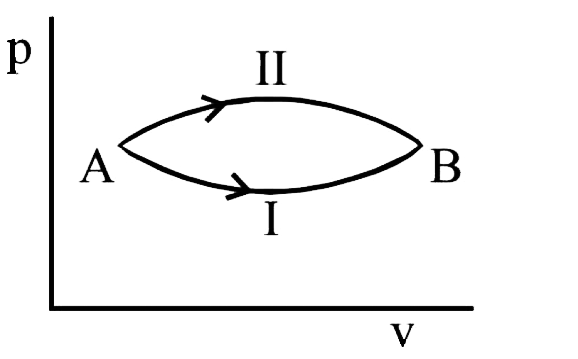
View SolutionA system goes from A to B via two processes I and II as shown in the figure. If ΔU1 and ΔU2 are the changes in the internal energies in the processes I and II respectively, then -

View SolutionA gas is expanded form volume V0→2V0 under three different processes as shown in the figure . Process 1 is isobaric process process 2 is isothermal and and process 3 is adiabatic .
Let ΔU1,ΔU2andΔU3 be the change in internal energy of the gs in these three processes then
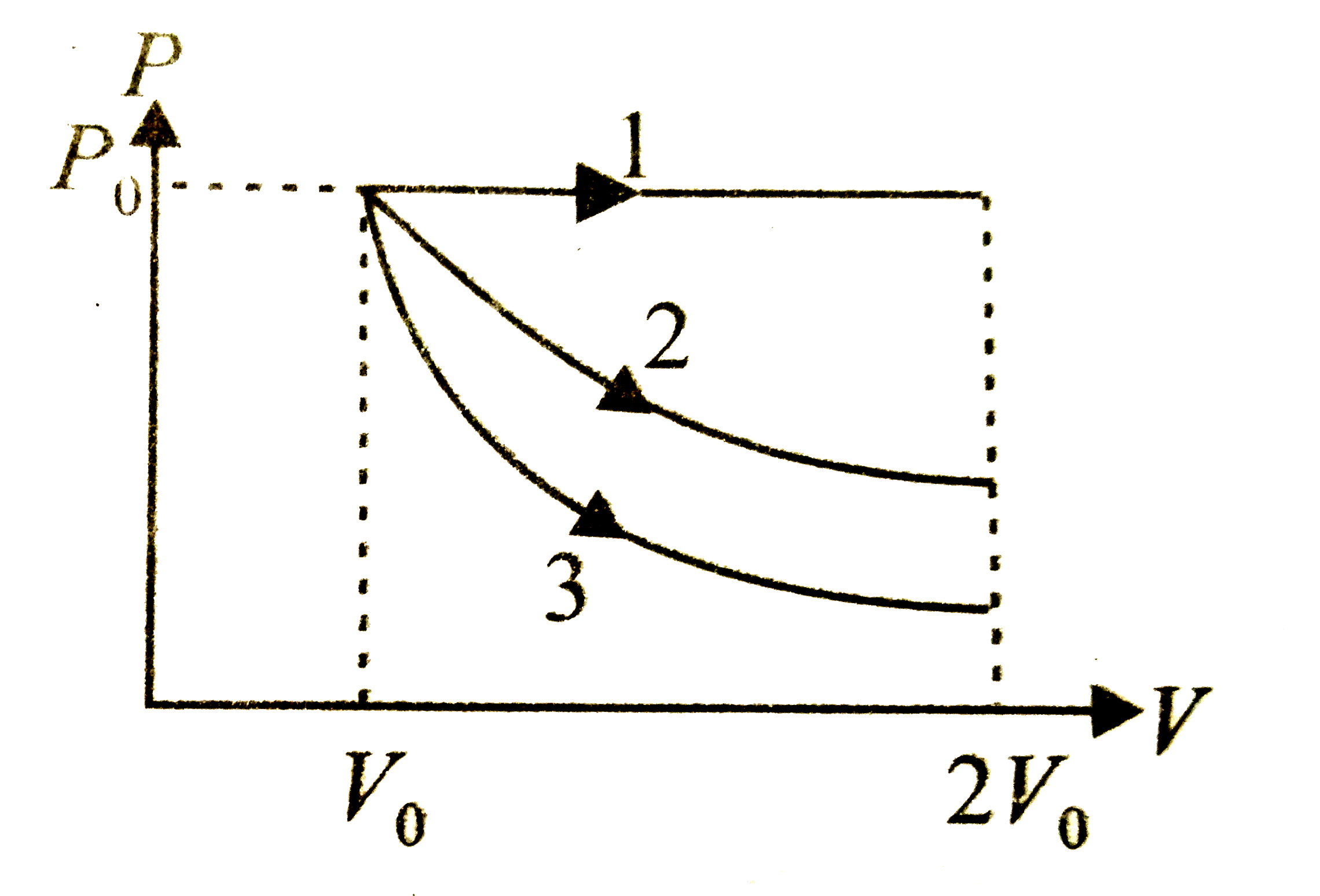
View SolutionA gas is expanded from volume V0 to 2V0 under three different processes, as shown in the figure. Process 1 is isobaric process, process 2 is isothermal and process 3 is adiabatic. Let ΔU1,ΔU2 and ΔU3 be the change in internal energy of the gas in these three processes. Then
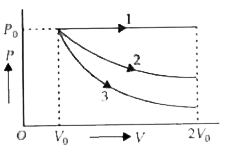
View Solution

